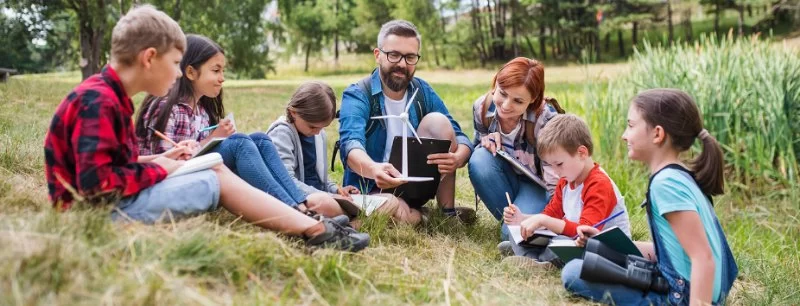Discover the benefits of outdoor education for teens, including personal growth, leadership skills, and mental wellness. Learn from real stories and explore opportunities available through Pine Cliff Resort.

- why-outdoor-education-matters-for-teen-development
- 1-building-self-confidence-through-outdoor-challenges
- 2-enhancing-social-skills-and-teamwork
- 3-boosting-mental-health-and-resilience
- 4-fostering-environmental-awareness-and-stewardship
- 5-developing-critical-thinking-and-problem-solving
- 6-how-pine-cliff-resort-supports-teen-outdoor-education
Why Outdoor Education Matters for Teen Development
Teen years are a pivotal time for identity formation, social growth, and emotional resilience. That’s why the benefits of outdoor education for teens are so significant. Environments beyond screens—like forests, rivers, and campgrounds—offer meaningful contexts for learning that classroom settings cannot replicate. Real-world experiences—from pitching a tent to navigating a trail—challenge teens physically and emotionally, encouraging independence and real measurement of their capabilities.
Research shows that teens engaged in consistent outdoor education demonstrate better concentration, higher self-confidence, and lower levels of stress. These programs emphasize experiential learning—encouraging risk assessment, teamwork, and resourcefulness. The ripple effects? Improved academic performance, stronger peer relationships, and a deeper connection to nature.
1. Building Self-Confidence Through Outdoor Challenges
Activities like rock climbing, canoeing, or backpacking push teens beyond familiar routines. Overcoming a steep incline or paddling through rapids gives tangible evidence of their strength. One teen shared that completing a multi-day hike at Pine Cliff Resort gave her the confidence to face public speaking class with newfound courage.
This growth isn’t about glory—it's about quiet victories. When a teen successfully navigates a creek crossing or builds a campfire, the internal belief of “I can handle this” builds. Such moments often spark lasting self-reliance and empowerment.
2. Enhancing Social Skills and Teamwork
Outdoor education frequently occurs in groups, requiring collaboration. Whether packing gear, cooking meals together, or setting up tents, teens learn to communicate, delegate, and support each other. Conflict may arise—but resolving it in a real-world setting hones empathy, compromise, and leadership.
Teenagers who once hovered on the edges of social groups often find belonging when mapping trails or cooking communal meals. At Pine Cliff Resort’s teen camp sessions, facilitators report teens who didn’t speak on day one leading group activities by midweek—testament to how outdoor programming builds connections.
3. Boosting Mental Health and Resilience
The benefits of outdoor education for teens include measurable mental health advantages. Fresh air, movement, and nature exposure reduce stress hormones and elevate mood. A study published by the Journal of Youth and Adolescence found teens who spend time outdoors report fewer symptoms of anxiety and depression.
One parent of a high school junior described how his daughter’s anxiety eased after participating in a wilderness weekend at Pine Cliff Resort. After unplugging and hiking alongside peers, she reported feeling calmer, more centered, and more capable of handling academic stress when she returned.
4. Fostering Environmental Awareness and Stewardship
Outdoor education teaches more than survival—it nurtures stewardship. Teens who study ecosystems or participate in trail restoration gain insights into how their actions impact landscapes. These lessons often spark long-term environmental values and activism.
One class visited woodlands for bio-monitoring and later volunteered to plant native species in local green spaces. These hands-on projects reinforce that environmental care isn’t theoretical—it’s something teens can actively contribute to.
5. Developing Critical Thinking and Problem-Solving
In the outdoors, planning campsites, adapting to unexpected rain, or figuring out trail navigation requires real-time problem-solving. Teens learn to assess risks, pivot plans, and make decisions based on shifting conditions. These are critical life skills—whether negotiating group dynamics or managing school tasks.
An instructor at Pine Cliff Resort recounted how a sudden afternoon thunderstorm forced teens to choose between bailing gear or seeking shelter. Their choice and action under pressure demonstrated leadership and practical judgment—skills harder to teach inside four walls.
6. How Pine Cliff Resort Supports Teen Outdoor Education
Pine Cliff Resort specializes in experiential teen programming designed to harness the benefits of outdoor education for teens. From multi-day backpacking trips to leadership camps, their offerings focus on safety, skill-building, and personal growth.
Each session includes trained facilitators, clear progression paths, and structured reflection sessions—so teens can process what they’re learning emotionally and cognitively. Whether it's junior wilderness adventurers or counselors-in-training, Pine Cliff helps teens explore nature with intention and confidence.
If you want your teen to thrive beyond screens—to gain confidence, build resilience, and connect with peers and planet—discover outdoor education programs at Pine Cliff Resort. These experiences provide lessons in leadership, empathy, and independence that last long after camp ends.
Walnut fork campground
WPH7+M3, Sky Valley, GA 30525, USA
Visit Location PageWingate by Wyndham Moab
1260 US-191, Moab, UT 84532, USA
Visit Location Page